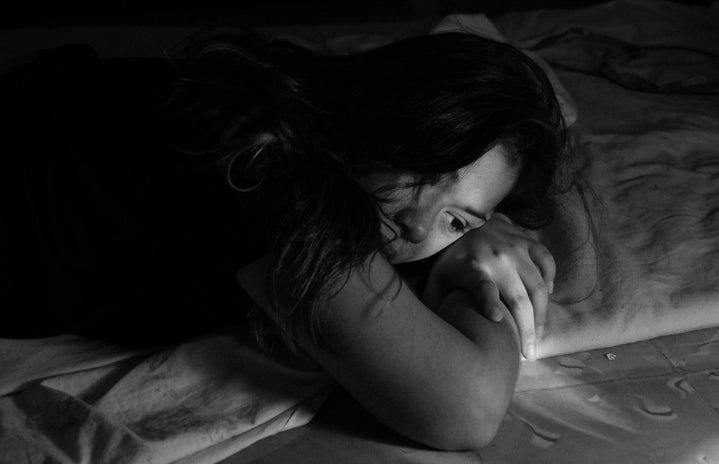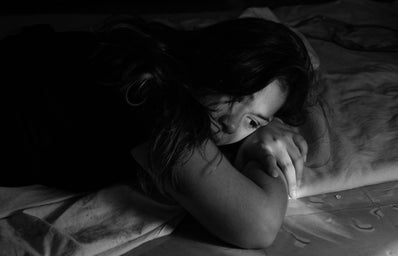College.
I can’t count the number of times, as a child, I locked myself in my room playing my usual game of “house” where the plot was, well no surprise here, college. I would use my mother’s old cellphone to pretend to make calls to my make-believe friends, giggling out phrases of child naivety such as “Want to hang out in my dorm tonight?,” “Wow! I just met the cutest boy at the pool party!,” “I’m majoring in Doctoring!” and so many more similar to these ones. I would dress up in hand-me-down gowns pretending to be at college dances and I would run around my room with my imaginary roommate as we continuously laughed about a joke our fake professor had told in class.
The number of times, as a preteen, I locked myself in my room watching movies that had the plot of, well DUH, college. Pitch Perfect, Legally Blonde, American Pie (one AND two!), Waterboy, even Monsters University; on repeat as I learned the reality of the college experience which on-screen, wasn’t much different from my fantasized one. The very idea of independence, scattered so sacredly between parties, falling in love and adulting, was the ultimate intrigue for my coming-of-age brain. College seemed like the place to be and the ultimate location for any teenager as they entered the age of adulthood.
The number of times, as a high school student, I locked myself in my room fantasizing of the future. The plot was, if you haven’t guessed it by now – college. What my major would be, how many friends I wanted to make, where I would attend university, and when my real life beyond highschool would finally begin. An imaginary world that I envisioned to have all the life-altering answers; a world in which I presumed would be perfect; a world of complete bliss, where flowers would bloom without the need for rain.
This. Is. Not. College.
Throughout my childhood and adolescent perceptions of college life, my imagination did not ponder the actuality in which mental illness defines a great part of the college years of many students. According to The Healthy Minds 2018-2019 Study, an average of 36% of college students suffers from depression, either major or moderate, while 31% suffer from an anxiety disorder. Overall, 56% of college students have received counseling or medications for positive depression and anxiety screenings. This is what I consider the underside of the broadcasted college experience because of the reality of the situation, not shown by the media with the parade of parties and love stories. The harsh actuality that truly is college, despite popular belief, is the very experience of being an undergraduate student can trigger mental illness rather than solve it.
When I look back at this idea of college that had manifested in my mind prior to the reality I have found myself in, my misconceptions had been influenced by the media. What tradition had told, what television had taught me in their shows and movies, what the college friends on my Instagram feed displayed post by post on their feeds; college appeared to be the ideal place for one to thrive. Society expected nonetheless of its students than both extensive social and academic success; to paint the perfect picture for any university catalog. College is a brand, and we have all bought it. However, on the other side of this display, the media purposefully shies away from the mental illness component that most college students suffer from on a daily basis and is just as real and tangible as the degrees every student works towards day after day, month after month and year after year – both are uphill battles.
I wanted to offer an all-encompassing view on mental illness in undergraduates so, in this article, I include a variety of college students experience with mental illness – from how it has shaped their social and academic identities and how they have learned to live with it to how it alters their relationship with their future, school, friends, love and most importantly, themselves.
The first, a friend of mine has, on numerous occasions, cried in the staircases of her dorm building when she is overwhelmed with her roommates loudly entering the room. What seems like a minor act with no implications, to others it can cause a triggering episode for those who suffer from mental illness. Although her roommates would likely comfort her, anxiety overwhelms the body to the point where it is necessary to be alone in order to cope. This same friend also says “depression has secluded” her to her dorm for days at a time, causing her to miss class more than once and lose time with friends. Depression, despite being a universal feeling that many suffer with, is an isolating experience for each beholder. Although these episodes can be detrimental, she says that breathing exercises and a meditation app on her phone have helped calm her down. She also says nurturing self-talk has “straight-up saved [her] life.” If we want flowers, we have to utilize the rain; self-empathy is the best nutrient for the garden that is our minds.
Second, another friend of mine cites her depression as the source of her lack of motivation to do schoolwork. She feels as if she does not care to do anything and is unresponsive to the general and overall happenings of everyday life. However, on the other hand, her anxiety pushes her to constantly be stressed and feel the need to be perfect. She described her relationship with depression and anxiety as “anxiety makes [her] care too much and depression makes [her] not care at all, both hindering [her] from reaching full potential.” Her explanation for how she copes is shaping her life around her mental illness meaning that she can only do well in school if she is working an easy schedule with a minimal social life, her free time consumed by laying in bed or distractions such as TV. She also mentioned how she used to go to therapy and receive medication, however, she can no longer afford it. This is a problem for most; needing accessibility to help but not having the financial means to do so. She also explained her experience with mental illness is the reason she is studying for a degree in behavioral sciences because she wants to have the education and skills to help people that undergo the same struggles she does.
As college is an experience that tends to be party-centric, some students use substances to help with coping. In some cases, this can be beneficial such as the use of medical marijuana when prescribed. However, self-medicating will cause greater damage to one’s mental health and it is not uncommon for many college students to drink and/or smoke, which when used to have a fun time, can be appropriate; but for some, it becomes a much more aggressive use of substances. When asking a friend about how mental illness impacts his social and academic life, he responded, “I’m drunk right now, that’s the best answer I can give.”
My own relationship with mental illness engulfed me in a trench of anxiety when transitioning to college life. A trench in which I could barely dig myself out of. I was lost in self-identity as everything I valued about myself in high school was entirely irrelevant to the present. How was I supposed to be living my best life, when I felt so empty in my own life? My expectations for college were awfully misleading and I found myself feeling more anxious than ever when in my imagination I had assumed I would be on top of the world with joyous excitement and a raw, newly discovered passion for life. My intentions for college were ghosts of my past presumptions. Making friends made me nauseous. What if they didn’t like me, didn’t invite me places, didn’t think I was fun enough? I was once so comfortable in standing up for my beliefs, but at college, I felt silenced, even though my brain was the only entity shushing me. I had never had a negative body image, but suddenly, when surrounded by beautiful girls with amazing bodies in the basement of a fraternity house on campus, I felt like I was one of the less beautiful ones.
This was unhealthy, and I knew it – I knew that I should not feel overwhelmed leaving my room to go to the dining hall, but I could not help overthink every detail from if I appeared weird eating alone to what people around me thought of the food I was eating. I would spend classes biting my nails, picking at my hair and praying people were not looking at me rather than focusing. I knew that this wasn’t me, it was my anxiety. Yet to me, they were two in the same. For me, the adjustment was a huge part of coping with how anxious I was and I had to learn the actions I could take to ensure I could address the presence of it in my life without letting it hinder me as I entered this new stage of my career and adulthood. The granola girl in me would push through episodes with essential oil formulas in my diffuser (three drops lavender, two drops orange, two drops frankincense and one drop eucalyptus- made to help with anxiety!). In moments where I felt helpless, I would journal my emotions and set goals for the current and coming weeks; make three more friends, wake up early and do yoga, call your Grammy (because we all know we should do that more!!), gain some confidence – flirt with a boy just to get back into rhythm! And of course, practice deep breathing.
Mental health in college students is a discussion that has continuously been growing and it’s slowly becoming less taboo. On our campus, like many universities, there is a multitude of help available for those who suffer from mental illness. Cutler Health Center Counseling Services, Check-In on Student Mental Health days, many guest lectures on mental health, call services or even confiding in an RA, are all examples of a few opportunities and safeguards that our University offers students that need assistance with their mental health.
Mental illness is a reality for most and it can affect an entire community, whether or not each individual within it is suffering from mental illness – the likelihood of knowing someone who does is very real. It is integral that those who have it learn healthy ways of coping and actively seek help from themselves or others and that we continue to educate the masses as a whole in recognizing the signs of mental illness and the ways, we as a community, can offer aid. College is the time for friends, fun and formulating the future; however, mental health is just as important as a focus and should be at the forefront of the continuous conversations we should be having with one another regarding this topic.


